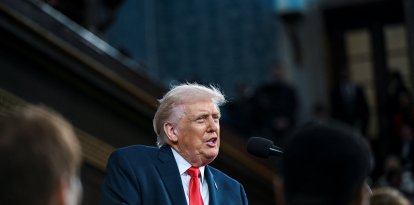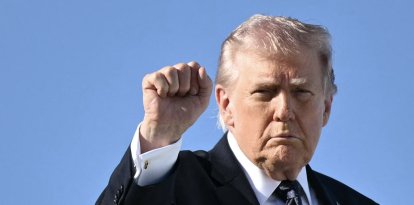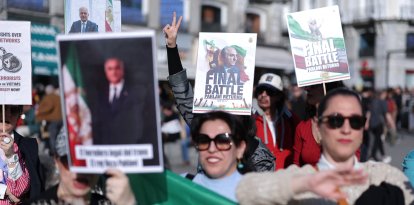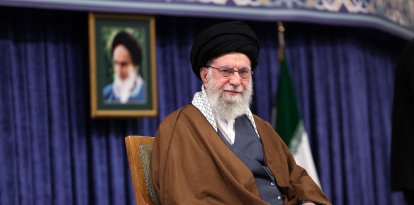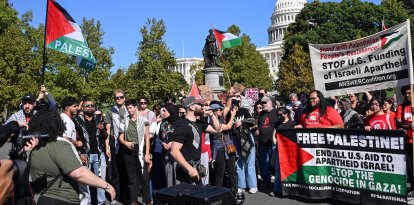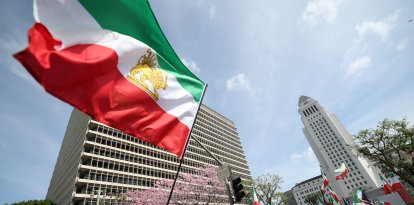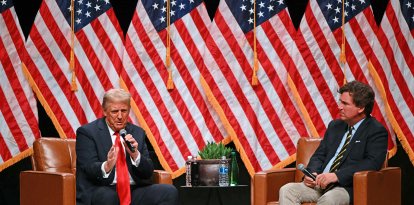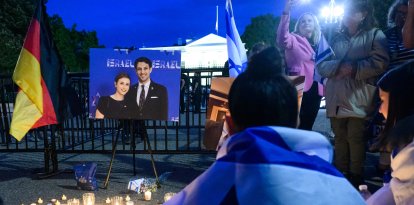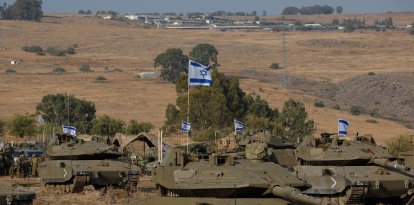‘Pathway’ to nuclear cooperation with Riyadh, US says
Energy Secretary Chris Wright did not say whether the progress in the talks with Saudi Arabia was tied to normalization with Israel.

Energy Secretary Chris Wright/ Ting Shen
The United States and Saudi Arabia are set to sign a preliminary deal for cooperation over Riyadh’s ambitions to develop a civilian nuclear industry, U.S. Energy Secretary Chris Wright told journalists on Sunday.
“We’ve not reached the details on an agreement, but it certainly looks like there is a pathway to do that,” Wright said after meeting with Saudi Energy Minister Prince Abdulaziz bin Salman in Riyadh earlier Sunday.
“For a U.S. partnership and involvement in nuclear here, there will definitely be a 123 agreement,” Wright said, referring to Section 123 of the U.S. Atomic Energy Act of 1954, which restricts the U.S. government and American companies’ ability to work on Saudi Arabia’s civilian nuclear industry until a formal agreement on peaceful cooperation is reached.
“There’s lots of ways to structure a deal that will accomplish both the Saudi objectives and the American objectives,” he said, while noting that Saudi authorities have yet to agree to Washington’s demands.
Section 123 defines nine nonproliferation criteria a state must meet to keep it from using the technology to develop nuclear weapons or transfer sensitive materials to other countries.
The U.S. and Israel have long signaled they are ready to accept the risks of a nuclear Saudi Arabia in return for Riyadh normalizing ties with the Jewish state, something Israel’s premier has said would be a “quantum leap …, it will change Israel’s relationship with the rest of the Arab world.”
Wright in his remarks on Sunday did not say whether the progress in the talks with Saudi Arabia was tied to normalization with Jerusalem, and his office did not respond to a request for comment by press time.
A spokesperson for the Israeli Prime Minister’s Office declined to comment on the issue to JNS on Monday morning.
Saudi Arabia has made the creation of a Palestinian state a precondition for normalization with Israel. On Feb. 5, the Saudis swiftly contradicted U.S. President Donald Trump, who had said that the Saudis were not demanding a Palestinian homeland in exchange for ties with Jerusalem.
Prime Minister Benjamin Netanyahu addressed normalization with Saudi Arabia and Riyadh’s demands that Jerusalem agree to a pathway toward a Palestinian state in a Feb. 6 interview with Israel’s Channel 14, saying such a state would be a “giant reward” for terror.
“I will not make any agreement that endangers the State of Israel. I will not do it,” said Netanyahu. “After the seventh of October [2023], do you know what that is? There was a Palestinian state. It was called Gaza. Look what we received. The biggest massacre since the Holocaust.
“To establish a Palestinian state after October 7 is a huge prize not only for Hamas [but also] for Iran,” the prime minister said.
Despite the gap between the parties, Netanyahu told Channel 14 that normalization with Saudi Arabia was on the table. “We will have not only a normalization agreement, perhaps a peace agreement, with Saudi Arabia, but also with many other countries.”
The Saudis view Israel’s military campaign against Hamas as a positive development, and have aligned themselves with the Palestinian Authority, which controls Arab-populated areas in Judea and Samaria and also supports terrorism, advocating for the P.A. to take over Gaza.














